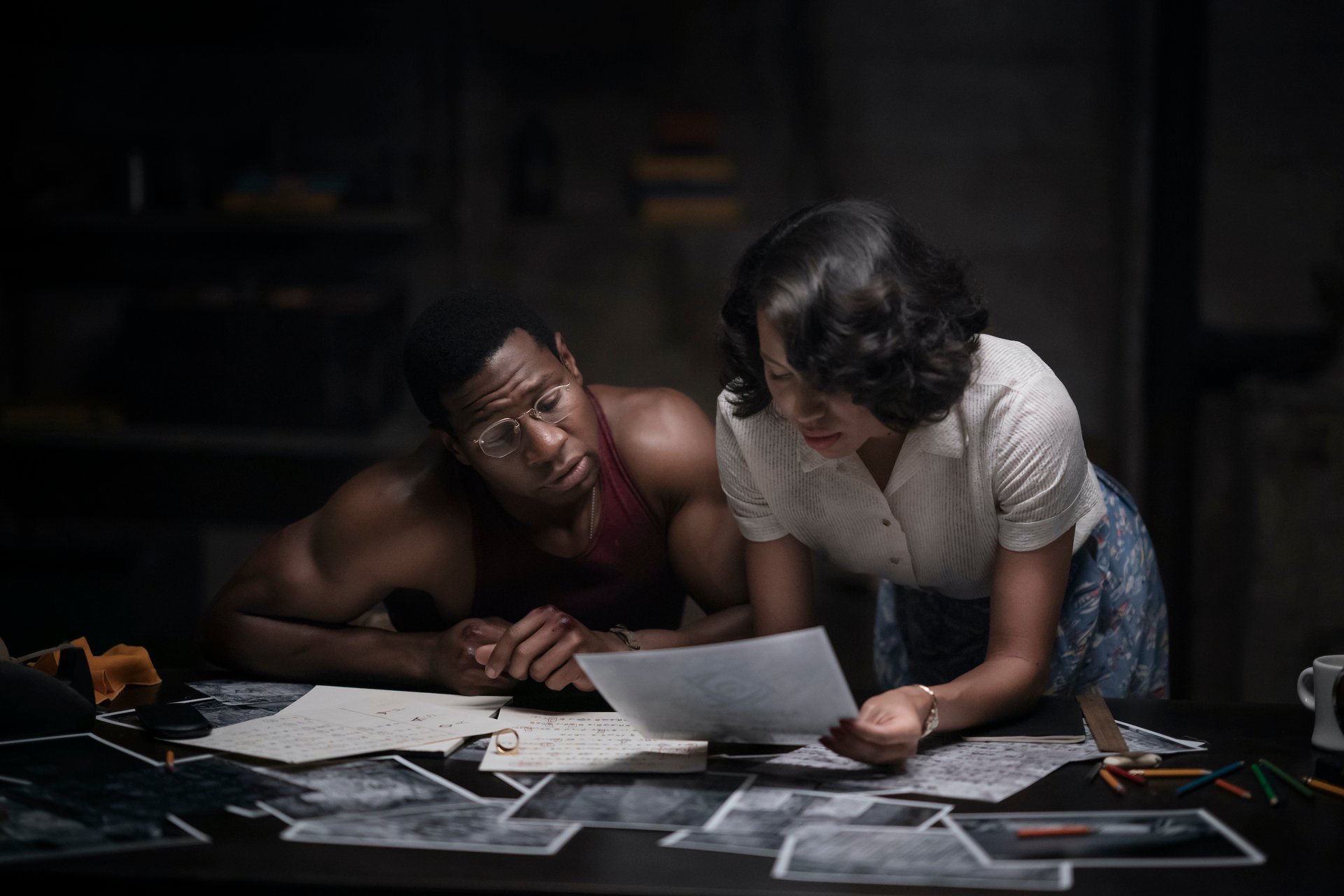The intersection of Blackness and personal identity is a major theme within episode 5 of HBO’s Lovecraft Country. The crew is back in Chicago, attempting to move forward with the pages from the “Book of Names” they recovered during their trip to Boston in episode 4. However, in an unexpected change of plot focus, the episode spends a significant amount of time focusing on Leti’s sister Rubi and the developments in her life.
Rubi now finds herself able to morph into a white woman, thanks to a special potion that William has given her. Her new identity gives her the freedom to navigate spaces she could only dream of before, but she learns that this may not be all it’s cracked up to be. Meanwhile, Tic and Leti grow closer during their process of deciphering the lost pages from the “Book of Names,” and Montrose reveals his true desires.
Rubi’s transracial evolution gives her a new life
Rubi’s romance with William has afforded her some new perks, one of which being a magic potion that allows her to change races upon its consumption. She’s initially shocked by the revelation but soon realizes that the transformation allows her to enjoy a finer side of life that she’d long dreamt about.
She soon returns to the department store that she previously decided not to apply for, but easily gets the job in her new skin. She’s offered an assistant manager position with the same credentials that would’ve likely gotten her turned away, had she still been Black. After approaching the only other Black employee at the store, she realizes she’s far more qualified than Tamra, the girl that has the position she originally desired. She’s also triggered by the offhand racist remarks her white coworkers make.
To repay William for the potion, she’s required to serve an exclusive party where a body is hidden in a closet. Later, she takes her white coworkers to a bar on the southside of Chicago, where they dance and enjoy themselves at Rubi’s expense. Things come full circle when she savagely assaults Mr. Hughes, her boss, for attempting to rape Tamra while they party. To round out the confusion, viewers even find out that William was actually Christina in disguise the entire time.
Montrose shamelessly explores his sexuality
In a shocking twist, it’s revealed that Montrose, Tic’s father, is actually attracted to men after he shows up at an unknown lover’s home and engages him in a wild tryst. Earlier in the season, Uncle George hints at Montrose not being Tic’s real father, so it actually makes sense for him to have some secret romantic endeavors that catch viewers off guard.
Later, Montrose is hanging out with the same unknown man in a dressing room for what appears to be a drag show, alongside several other men. Eventually, they enter the party, with Montrose dancing in pure bliss. He appears to finally be in a safe space where he can be himself.
Tic and Leti grow closer as they make discoveries


Tic and Leti’s relationship continues to develop as they delve deeper into the secrets of the “Book of Names.” They have a steamy encounter in a garage, and later they work together to learn more about the mysterious alphabet used to write on the lost pages.
However, in the absence of Leti, Tic makes a jarring discovery that viewers will have to wait until later on to find out.
Rubi’s new identity represents a dream shared by many Black Americans
Rubi’s newfound identity as “Hilary” gives her the freedom to walk the streets and earn an income she previously never had access to. The smile on her face as she licks an ice cream cone as a white woman personifies the joy she feels for finally being given an opportunity at a fair life. She couldn’t have said it any better when she laments that being Black and a woman has “interrupted” her life.
Her sentiment is far too relatable for Black people living in America. Far too often, Black Americans are stopped by police, questioned by their neighbors, and kept from opportunities they’ve earned, simply for being Black. Their lives and lifestyles are constantly marginalized due to the systemic inequalities that serve to maintain white supremacy. And far too often do members of the Black community seek to escape this truth by assimilating with white culture.
Black identities are fluid and ever-evolving
If anything Rubi and Montrose’s experiences in episode 4 personify the reality that Black identities are complex and non-binary. Black beings can be this and that, one and the other, without having to identify as such. Black identities are not confined to the titles that are forced upon them, and Black Americans have the freedom to choose how they identify themselves at any given moment. Rubi does not have to remain stuck within the limitations of her ethnic background, and Montrose has the right to explore the sexual spectrum however he pleases.
‘Strange Case’ reveals the complexities the Lovecraft crew and the magic surrounding them
Things have only gotten stranger since the premiere of Lovecraft Country. Just when viewers think they have an understanding of how magic works, an unexpected discovery presents itself. Apparently, there are spells that allow people to morph into another race, gender, or whatever they please. We’re also shown that every character in the show has a hidden truth to them (whether it be their abilities, desires, or identity) that only time to reveal. On Lovecraft Country, only one thing is for certain—nothing is for certain.